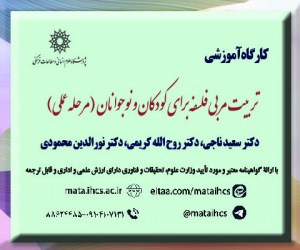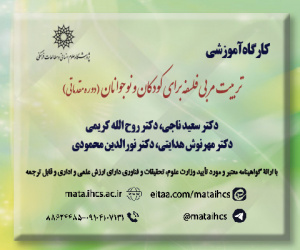A Critical Geopolitical Analysis of the Representation of Africa in International Relations: Andrew Linklater’s Approach (مقاله علمی وزارت علوم)
درجه علمی: نشریه علمی (وزارت علوم)
آرشیو
چکیده
The African continent has, to date, been mostly perceived as a “marginalized” geographical or geopolitical foundation and is represented in international relations (IR) so narrowly in the definitions provided by classical geopolitical knowledge or hegemonic knowledge of international relations. Nevertheless, efforts must be made by intellectual and practical elites worldwide for a more realistic representation of the opportunities and potentials of this continent by relying on conceptual-theoretical formulations. To address the main question of the relationship between Africa's geopolitical position and its conceptual and theoretical representation within the discipline of International Relations. The author suggests examining the pathology of conceptual-theoretical formulations in International Relations (IR) and Geopolitics. this requires a new reading of critical geopolitics drawn on the works of Andrew Linklater, which can provide more basic explanatory ideas with the critique of epistemological foundationalism, state-centrism, narrative-based approach, and nature of the disciplines. This paper is a theoretical research that proposes a new conceptual framework. It adopts an explanatory-critical analytical method to explain the theoretical approach of global critical geopolitics. The results of the paper emphasize that the theories and texts of IR and Geopolitics must be reviewed and reformulated with innovative evaluations centered on the position and role of Africa in the international history of the world. It highlights the importance of considering the distinct lived experiences of the continent which can serve as a basis for developing a methodological, epistemological, and ontological research program for participation in global politics and non-western international relations.A Critical Geopolitical Analysis of the Representation of Africa in International Relations: Andrew Linklater’s Approach
The African continent has, to date, been mostly perceived as a “marginalized” geographical or geopolitical foundation and is represented in international relations (IR) so narrowly in the definitions provided by classical geopolitical knowledge or hegemonic knowledge of international relations. Nevertheless, efforts must be made by intellectual and practical elites worldwide for a more realistic representation of the opportunities and potentials of this continent by relying on conceptual-theoretical formulations. To address the main question of the relationship between Africa's geopolitical position and its conceptual and theoretical representation within the discipline of International Relations. The author suggests examining the pathology of conceptual-theoretical formulations in International Relations (IR) and Geopolitics. this requires a new reading of critical geopolitics drawn on the works of Andrew Linklater, which can provide more basic explanatory ideas with the critique of epistemological foundationalism, state-centrism, narrative-based approach, and nature of the disciplines. This paper is a theoretical research that proposes a new conceptual framework. It adopts an explanatory-critical analytical method to explain the theoretical approach of global critical geopolitics. The results of the paper emphasize that the theories and texts of IR and Geopolitics must be reviewed and reformulated with innovative evaluations centered on the position and role of Africa in the international history of the world. It highlights the importance of considering the distinct lived experiences of the continent which can serve as a basis for developing a methodological, epistemological, and ontological research program for participation in global politics and non-western international relations.



